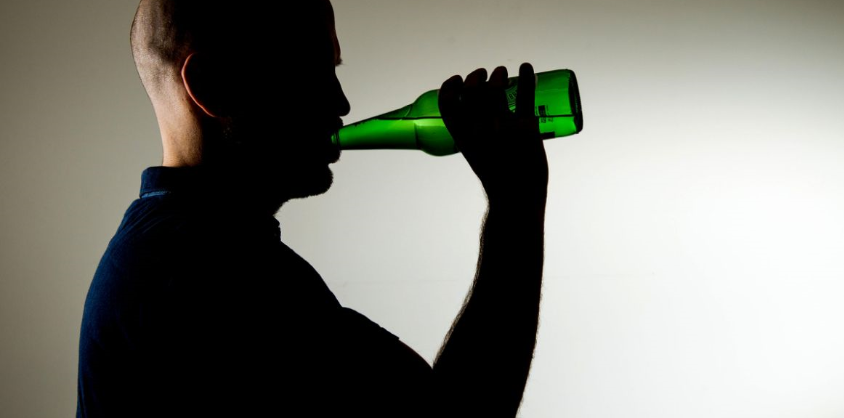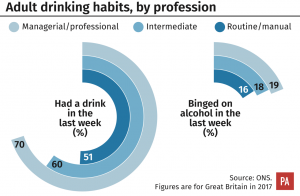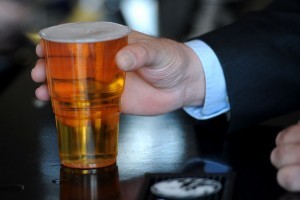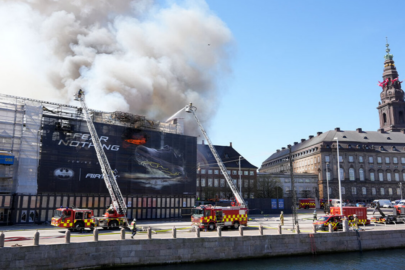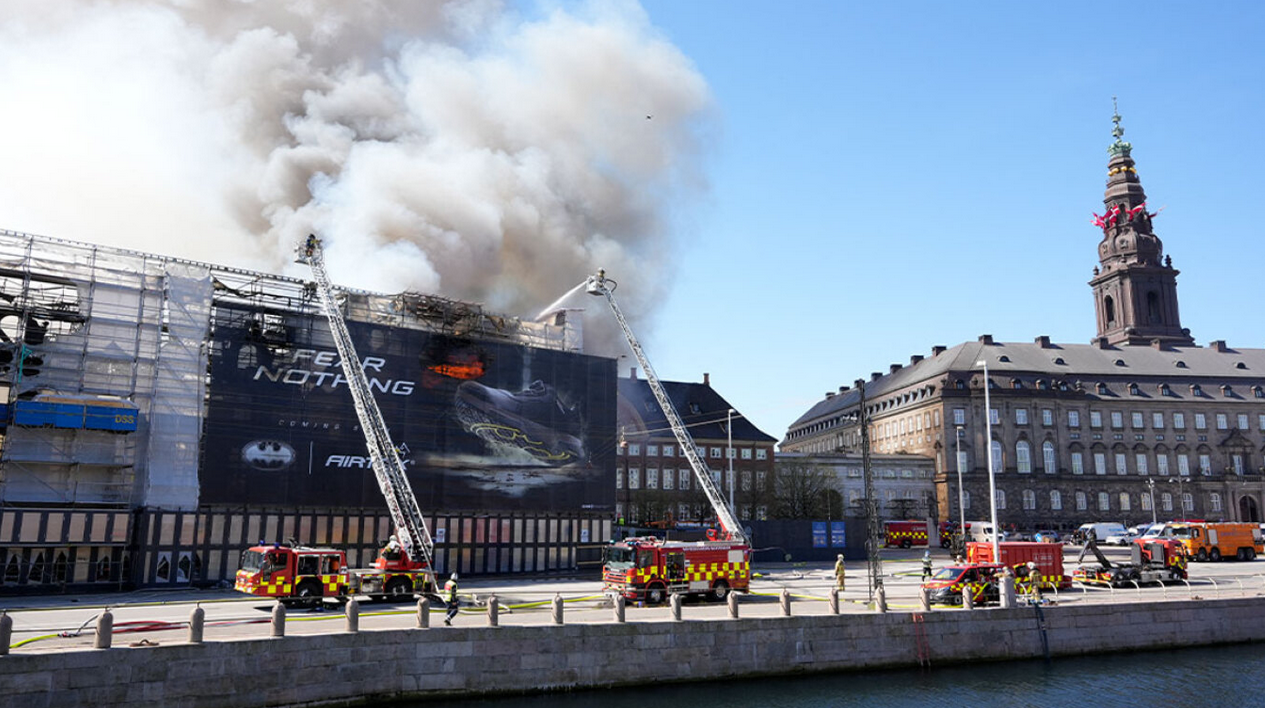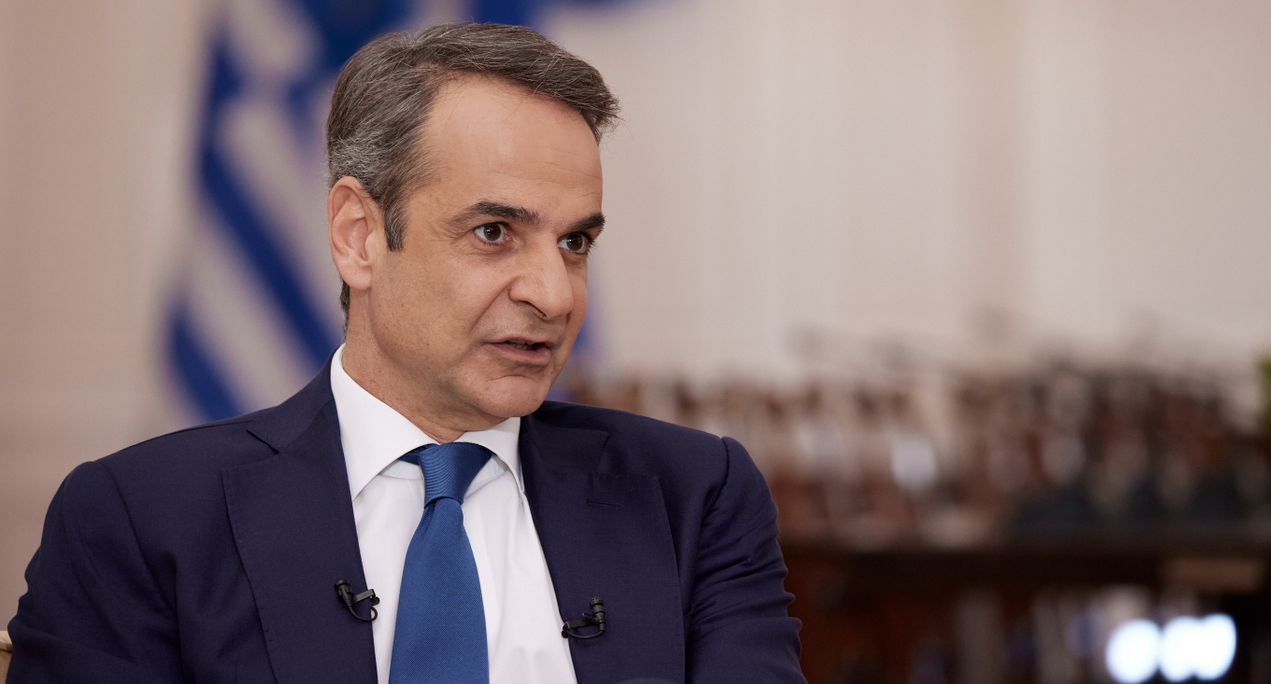Doctors, lawyers and teachers are more likely to drink alcohol than manual workers, figures have revealed.
Around seven in 10 people (69.5%) who work in managerial and professional jobs had consumed alcohol in the previous week, according to new survey data from the Office of National Statistics (ONS).
This compares with roughly half (51.2%) of routine and manual workers – a group which includes labourers, bar staff, lorry drivers, receptionists and care workers.
Architects, nurses, teachers, lawyers and doctors are among those classified as managerial and professional occupations.
The data, from the ONS Opinions And Lifestyle Survey, also shows that the highest earners are most likely to drink.
Of those earning £40,000 and above, almost four in five (78.9%) said they had drunk in the previous week, compared with 57% of respondents aged 16 and over across the UK.
The figures, which come as Scotland becomes the first country in the world to implement a minimum unit price for alcohol, reveal that England has the highest proportion of adult drinkers.
In England, 57.8% of adults said they had drunk in the previous week compared with 53.5% in Scotland and 50% in Wales.
The report notes that the link between professional occupation and drinking could be connected with income and age.
Around a third (34%) of respondents working in managerial and professional jobs reported earning £40,000 and above, compared with 5.4% of those in manual jobs.
Managerial jobs also tend to be filled by older workers, while those aged 16 to 24 are less likely to drink than any other age group, the report states.
However, when they do drink, consumption on their heaviest days tends to be higher than other age groups.
Around a fifth of respondents (20.4%) reported being teetotal, equating to roughly 10.4 million people in Great Britain.
Teetotalism has increased among those aged 16 to 24, from 19% in 2005 to 22.8% in 2017, the figures show.
However, the proportion of women over 65 who said they did not drink has decreased from 37.2% in 2005 to 27.9% last year.
A spokesman for the Alcohol Information Partnership said: “Whilst these figures show that professionals are more likely to have drunk in the previous week than manual workers, that doesn’t mean they are drinking irresponsibly.
“The data clearly shows that the vast majority of UK citizens who choose to drink alcohol do so sensibly. That is a good thing and should be celebrated.
“To encourage this pattern of sensible drinking, the Government, communities, industry and NGOs must continue to work together to communicate accurate information about alcohol and address the minority of drinkers who need to change their habits.”
Source: yahoo

